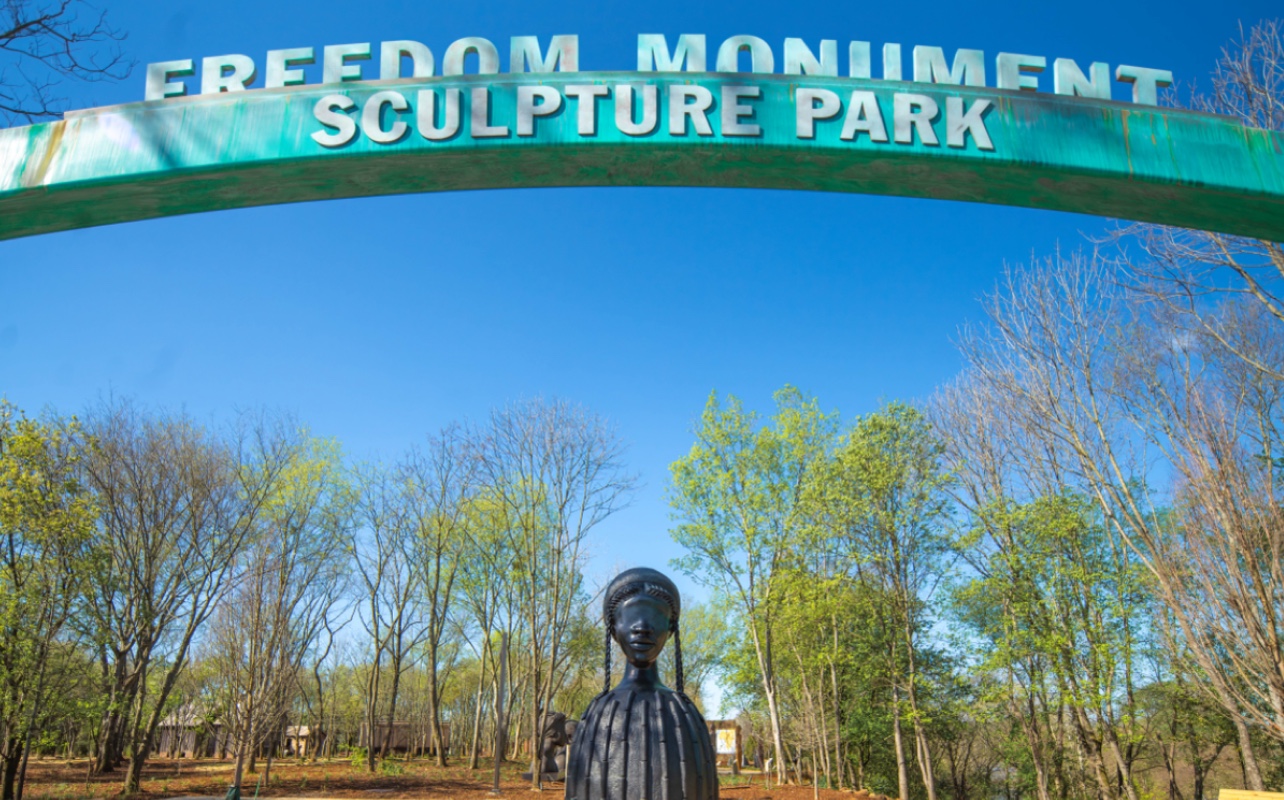
March 22, 2024
Montgomery’s New Sculpture Park Will Address Slavery Firsthand
The Freedom Monument Sculpture Park will expose visitors to 170-year-old slave dwellings from cotton plantations, holding pens, and more.
A groundbreaking new site, the Freedom Monument Sculpture Park, will open its gates on March 27 across 17 acres in Montgomery, Alabama.
This endeavor by the Equal Justice Initiative (EJI) aims to provide an authentic and meaningful space exploring the brutal realities of slavery and its enduring legacy in America by melding historical artifacts, modern art installations, original scholarly research, and firsthand stories. According to The Birmingham Times, the park seeks to fill a glaring gap in education while paying tribute to the millions who suffered unimaginable cruelty yet persevered with hope.
EJI’s Founder and Director Bryan Stevenson said, “I believe this will become a special place for millions of people who want to reckon with the history of slavery and honor the lives of people who endured tremendous hardship but still found ways to love in the midst of sorrow.”
Visitors will encounter a powerful collection at the site, including 170-year-old slave dwellings, rail cars, holding pen replicas, and even bricks formed by enslaved hands nearly two centuries ago. Yet the park also uplifts inspiring narratives of endurance, tenacity, and defiance against the dehumanizing forces of slavery. “Many of us are the heirs to that extraordinary perseverance and hope,” Stevenson said.
The 43-foot National Monument to Freedom stands tall at 155 feet and is engraved with more than 122,000 surnames adopted by formerly enslaved Black Americans and millions of people across generations.

Bordered by train tracks built through enslaved labor, the park resides along the Alabama River, the homeland of Indigenous peoples centuries before Europeans arrived. The art is a collective effort of newly commissioned pieces and major sculptures created by artists Charles Gaines, Alison Saar, Kwame Akoto-Bamfo, Simone Leigh, Wangechi Mutu, Rose B. Simpson, Theaster Gates, Kehinde Wiley, and Hank Willis Thomas.
Stevenson, who initially avoided visiting plantations, eventually recognized their raw authenticity. “Building a kind of a narrative around this land was the objective…a place to have a deep, immersive engagement with the legacy of slavery…as a place to have a deep, immersive engagement with the legacy of slavery, and primarily the lives of enslaved people, so we can have a deeper understanding of that. … It’s about humanizing it,” he told NBC News.
The new park will be near the Memorial to Peace and Justice and the Legacy Museum, which sits across from the Legacy Plaza, where EJI unveiled a seated monument of Rosa Parks in February, according to coverage by BLACK ENTERPRISE.
RELATED CONTENT: Controversy Over A Lesson Plan About Slavery Sparks Concern In Houston’s Independent School District